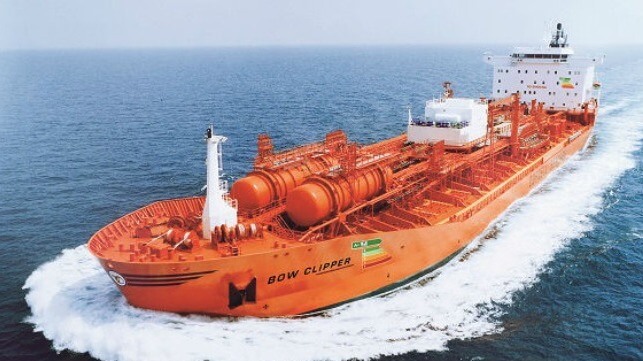Odfjell Trials Solid Oxide Fuel Cell Aboard Chemical Tanker

Chemical tanker operator Odfjell is partnering up with Alma Clean Power and DNV to test out a solid oxide fuel cell system for shipboard power generation. If all goes according to the timetable, one of Odfjell's tankers will have an SOFC on board by the end of next year.
Solid oxide fuel cells run at high temperature and high efficiency, and they accept a variety of fuels for input. They can use ammonia, LNG, methanol and hydrogen to produce electricity, and they are generally more energy efficient than internal combustion engines.
Odfjell plans to install an 80 kilowatt solid oxide fuel cell "generator" module aboard one of its tankers. The unit will run on natural gas, and it is a stepping stone towards bigger devices. In January, Alma Clean Power secured an AIP for the design of a one-megawatt fuel cell powered by ammonia.
“We’ve been working structured and actively with energy-efficiency technologies and decarbonization for more than a decade, and this project represents another progressive step in energy efficiency-, fuel flexibility and zero emissions capability innovations," said Harald Fotland, Odfjell's CEO.

that matters most
Get the latest maritime news delivered to your inbox daily.
Solid oxide fuel cells are highly efficient but heavy, a tradeoff which is limiting in shoreside mobility but is usable in a maritime context. Other SOFC testing agreements include a demonstration installation aboard an HD Hyundai-built LNG carrier, which is due to launch in 2025. The pilot will use a 600 kW SOFC generating unit to produce auxiliary power for the vessel. Korea's Doosan Fuel Cell and HyAxiom will develop and supply fuel cells for the ship.
A Danish consortium funded by the Danish EUDP (Energy Technology Development and Demonstration Program) also trialed SOFC technology. The SOFC4Maritime initiative brought together Svitzer, Alfa Laval, DTU, Haldor Topsøe, and the Maersk Mc-Kinney Møller Center for Zero Carbon Shipping in order to test out ammonia-fueled SOFCs.
